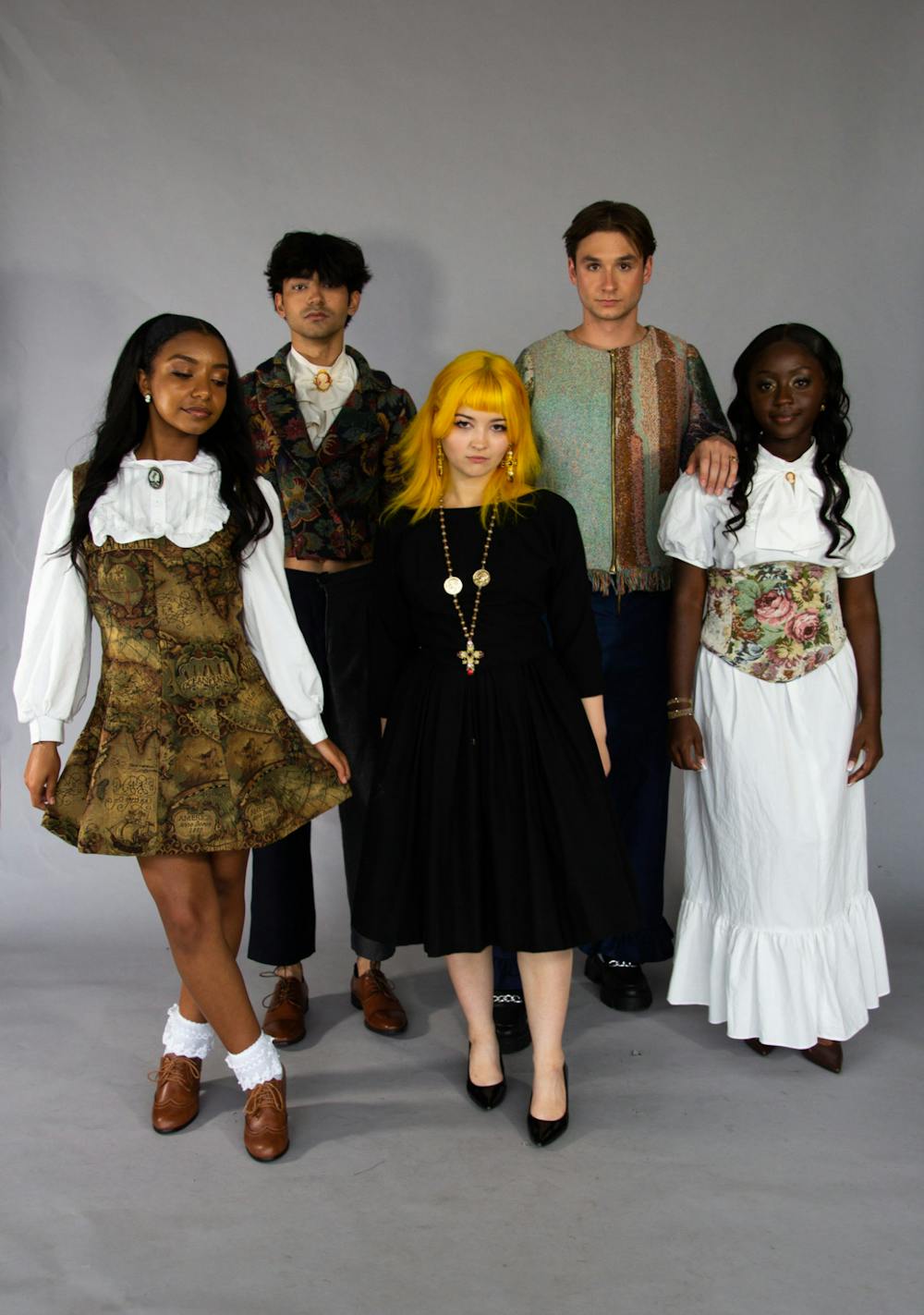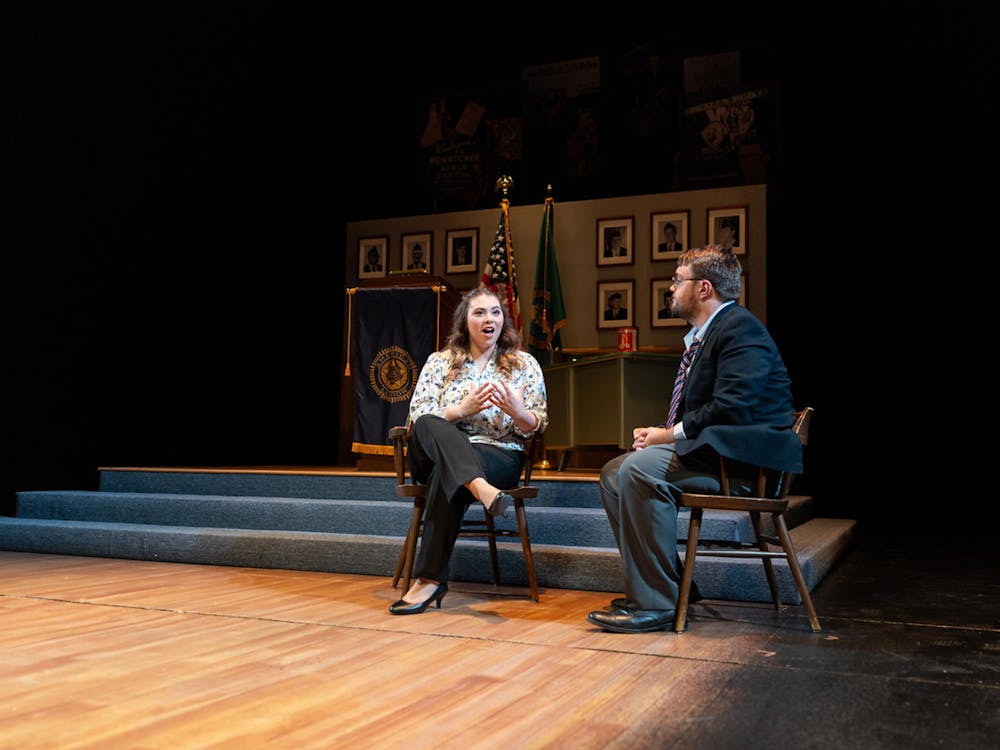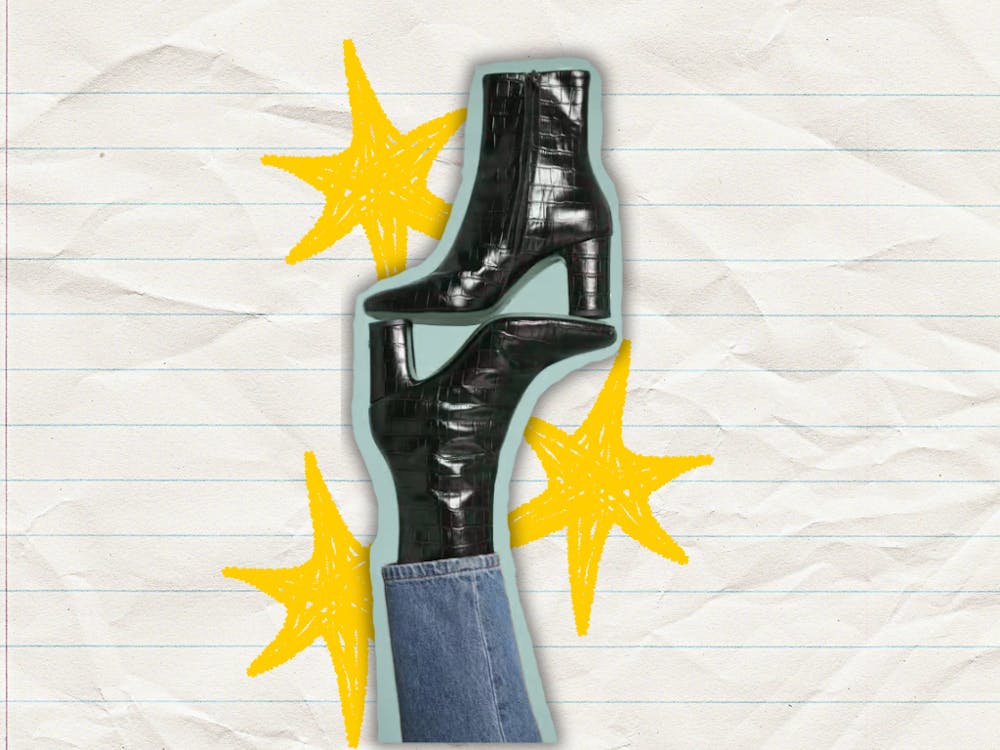As the entertainment awards season wraps up, fans are reveling in their favorite artists’ wins, while others are mourning their losses, and some can’t stop thinking about the red carpet looks.
For movie fans tuning into this year’s Oscar Awards, they may have noticed their favorite celebrities adorning a red pin, featuring a hand with a black heart in the middle. The pin symbolized support for the activist group Artists4Ceasefire, which condemns the Israel-Hamas war.
While only one speech during the award ceremony actually acknowledged the war, most celebrities let their pins do the talking, and while it caught the attention of viewers, this isn’t the first time figures in the media have used their clothes to express their political views.
In 2018, former first lady Melania Trump sported a Zara jacket with text on the back that read, “I really don’t care. Do U?” after visiting a shelter for detained immigrant children in Texas. While her spokesperson said the jacket was unrelated to the visit, former President Donald Trump took to Twitter to clarify the jacket was in response to “Fake News Media.”
In 2021, U.S. Rep. Alexandria Ocasio-Cortez wore a white dress covered in red text that said, “Tax the rich,” to the Met Gala, an annual fashion event known for its wealthy attendees.
Heather Akou, an associate professor in the fashion design program at Indiana University, said fashion has been used for political expression since the late 1700s.
“George Washington, when he was inaugurated, very deliberately wore a wool suit made out of locally sourced materials as an expression of how he was going to support local industries,” Akou said.
She also pointed to examples in the 1980s when people wore red ribbons to honor those suffering from the AIDS crisis and in the ’60s when people wore black armbands to protest the war in Vietnam.
As history has progressed, Akou said it is much easier to produce clothing that conveys a message.
“If you have access to a computer and have just some very basic graphic design skills to create a design, then you can upload it to a site … and they will print on demand your design,” she said.
Rapid production and consumerism in the fashion industry are two topics that Vanessa Hickcox, a Miami University alumna, is passionate about. She vocalized her opinions on the topics in last year’s Miami University Fashion & Design’s (MUF&D) fashion show. Her collection expressed her opinions on climate change.
“The fashion industry is one of the biggest polluting industries, so I really wanted to carry that through to my collection and kind of protest the use of new virgin materials,” Hickcox said.
Enjoy what you're reading?
Signup for our newsletter
Her entire collection was made from repurposed materials such as thrifted bed sheets and repurposed clothing. Although her message was more subliminal than Ocasio-Cortez’s dress or Trump’s jacket, Hickcox said it was important for her to convey her opinion through the fabrics itself.
“There is a frustration with the modern fashion industry [because] there’s not many opportunities to buy high quality garments unless you are buying secondhand or you are taking advantage of the materials that are abundant in the secondhand market,” she said.
Hickcox graduated from Miami in December 2023, but she is creating a collection for this year’s fashion show that is not as politically-inspired but is still committed to using natural biodegradable materials.
Drawing from her own work, Hickcox said she thinks many designers use fashion as an outlet for political expression because it is “the most universal medium.”
“Typically, if you’re doing physical paintings or music or artwork, it’s very contextual. It’s confined to a gallery or a radio, but fashion is so ubiquitous,” Hickcox said.
Conversely, for those who wear garments that are political in nature, it can be an opportunity to be vocal about beliefs when speech is prohibited.
“If I go into a polling place, I couldn’t wear a campaign T-shirt for someone who is currently on the ballot,” Akou said. “But, say I’m a Republican, I could wear a red shirt to show my support.”
Akou, who has collected over 80 political T-shirts, said because of the ability to mass produce clothing, it’s easier for politicians to create campaign merchandise. Therefore, it is becoming more common for people to wear clothing with political expressions.
“Humans have a lot more clothing now, and that means we have a lot more opportunities to say different kinds of things,” Akou said. “We have a lot more opportunities to wear things because they are fun, or we like the way they look, or we like what they say.”




